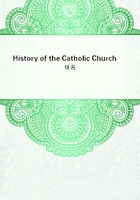
第3章
France, which consisted formerly of a collection of almost independent provinces, was welded together into one united kingdom; a similar change took place in Spain after the union of Castile and Aragon and the fall of the Moorish power at Granada. In England the disappearance of the nobles in the Wars of the Roses led to the establishment of the Tudor domination. As a result of this centralisation the Kings of France, Spain, and England, and the sovereign princes of Germany received a great increase of power, and resolved to make themselves absolute masters in their own dominions.
Having abandoned the unfortunate peasants who had been led to slaughter by his writings, Luther determined to make it clear that his religious policy was in complete harmony with the political absolutism aimed at by the temporal rulers. With this object in view he put forward the principle of royal supremacy, according to which the king or prince was to be recognised as the head of the church in his own territories, and the source of all spiritual jurisdiction. By doing so he achieved two very important results. He had at hand in the machinery of civil government the nucleus of a new ecclesiastical organisation, the shaping of which had been his greatest worry; and, besides, he won for his new movement the sympathy and active support of the civil rulers, to whom the thought of becoming complete masters of ecclesiastical patronage and of the wealth of the Church opened up the most rosy prospects. In Germany, in England, and in the northern countries of Europe, it was the principle of royal supremacy that turned the scales eventually in favour of the new religion, while, at the same time, it led to the establishment of absolutism both in theory and practice. From the recognition of the sovereign as supreme master both in Church and State the theory of the divine rights of kings as understood in modern times followed as a necessary corollary.
There was no longer any possibility of suggesting limitations or of countenancing rebellion. The king, in his own territories, had succeeded to all the rights and privileges which, according to the divine constitution of the Church, belonged to the Pope.
Such a development in the Protestant countries could not fail to produce its effects even on Catholic rulers who had remained loyal to the Church. They began to aim at combining, as far as possible, the Protestant theory of ecclesiastical government with obedience to the Pope, by taking into their own hands the administration of ecclesiastical affairs, by making the bishops and clergy state-officials, and by leaving to the Pope only a primacy of honour. This policy, known under the different names of Gallicanism in France, and of Febronianism and Josephism in the Empire, led of necessity to conflicts between Rome and the Catholic sovereigns of Europe, conflicts in which, unfortunately, many of the bishops, influenced by mistaken notions of loyalty and patriotism, took the side of their own sovereigns. As a result, absolute rule was established throughout Europe; the rights of the people to any voice in government were trampled upon, and the rules became more despotic than the old Roman Emperors had been even in their two-fold capacity of civil ruler and high priest.
Meanwhile, the principle of private judgment had produced its logical effects. Many of Luther's followers, even in his own lifetime, had been induced to reject doctrines accepted by their master, but, after his death, when the influence of Tradition and of authority had become weaker, Lutheranism was reduced to a dogmatic chaos. By the application of the principle of private judgment, certain leaders began to call in question, not merely individual doctrines, but even the very foundations of Christianity, and, in a short time, Atheism and Naturalism were recognised as the hall-mark of education and good breeding.
The civil rulers even in Catholic countries took no very active steps to curb the activity of the anti-Christian writers and philosophers, partly because they themselves were not unaffected by the spirit of irreligion, and partly also because they were not sorry to see popular resentment diverted from their own excesses by being directed against the Church. But, in a short time, they realised, when it was too late, that the overthrow of religious authority carries with it as a rule the overthrow of civil authority also, and that the attempt to combine the two principles of private judgment and of royal supremacy must lead of necessity to revolution.
* * * * *
I wish to express my sincere thanks to the many friends who have assisted me, and particularly to the Very Rev. Thomas O'Donnell, C.M., President, All Hallows College. My special thanks are due also to the Rev. Patrick O'Neill (Limerick), who relieved me of much anxiety by undertaking the difficult task of compiling the Index.
James MacCaffrey.
St. Patrick's College, Maynooth, Feast of the Immaculate Conception.
HISTORY OF THE CATHOLIC CHURCH
From the Renaissance to the French Revolution